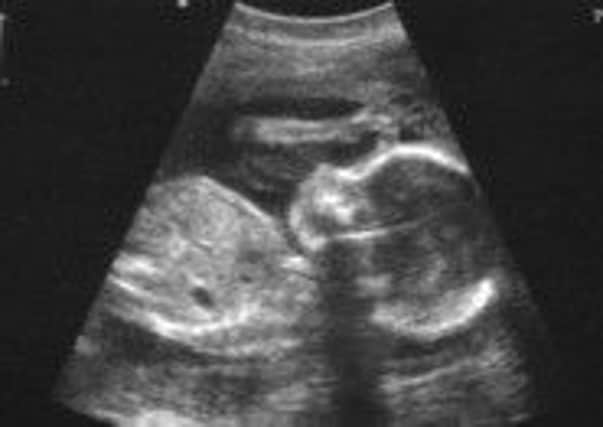Cancer drug could help ectopic pregnancy women


Experts in Edinburgh found that treating ectopic pregnancies – where an embryo is implanted inside the fallopian tube instead of the womb – with a lung cancer medicine as well as conventional therapy could significantly reduce the need for women to undergo surgery afterwards to remove the affected tube.
Scientists believe this will help patients’ future levels of fertility, by leaving them with both tubes intact to give them greater chances of having normal pregnancies at a later date than they would with only one tube remaining.
Advertisement
Hide AdAdvertisement
Hide AdResearchers also found that the drug combination was able to shorten the time it took to successfully treat ectopic pregnancies in women who did not need surgery.
The lung cancer drug, called gefitinib, works by blocking a protein that is known to encourage cell growth and is found to be present in high levels at the site of ectopic pregnancies.
Researchers found that combining gefitinib with the conventional treatment, the chemotherapy drug methotrexate, could reduce the need to remove the fallopian tube in “a significant number of cases”.
Dr Andrew Horne, of Edinburgh University’s Medical Research Council Centre for Reproductive Health, outlined the emotional impact of ectopic pregnancy on patients and stressed that any measures which could prevent surgery could only be a good thing.
He said: “An ectopic pregnancy can be extremely stressful for the woman involved. If we can reduce the need for surgery, and thereby help fertility levels, then that would be an enormous benefit.”
In an ectopic pregnancy, an embryo is implanted outside the uterus, usually in one of the two fallopian tubes through which embryos pass as they move from the ovary to the uterus. As the ectopic pregnancy grows and enlarges, it causes pain and bleeding and, if not treated, will eventually rupture and cause internal haemorrhaging.
Around 12,000 women suffer an ectopic pregnancy in the UK each year, with five dying on average as a result of the condition. It accounts for one in 80 pregnancies and is responsible for up to 8 per cent of all pregnancy-related deaths.
The study, published in the journal Obstetrics and Gynaecology and conducted in partnership with the University of Melbourne, was based on a trial involving just a dozen women with ectopic pregnancies.
Advertisement
Hide AdAdvertisement
Hide AdExperts now plan to analyse the data further and hope to launch a much larger trial.
The Ectopic Pregnancy Trust said the study was “wonderful news”. Trust chairman Alex Peace-Gadsby, who underwent emergency surgery for a misdiagnosed ectopic pregnancy herself, said: “If this can provide women with more treatment options and reduce their physical trauma, which in turn will lessen the emotional impact they must suffer, then further study is applauded.”
The Royal College of Obstetricians and Gynaecologists cautioned that the study was based on very small numbers of patients, adding that avoiding an operation did not necessarily avoid the damage to the tube which ectopic pregnancies can cause.